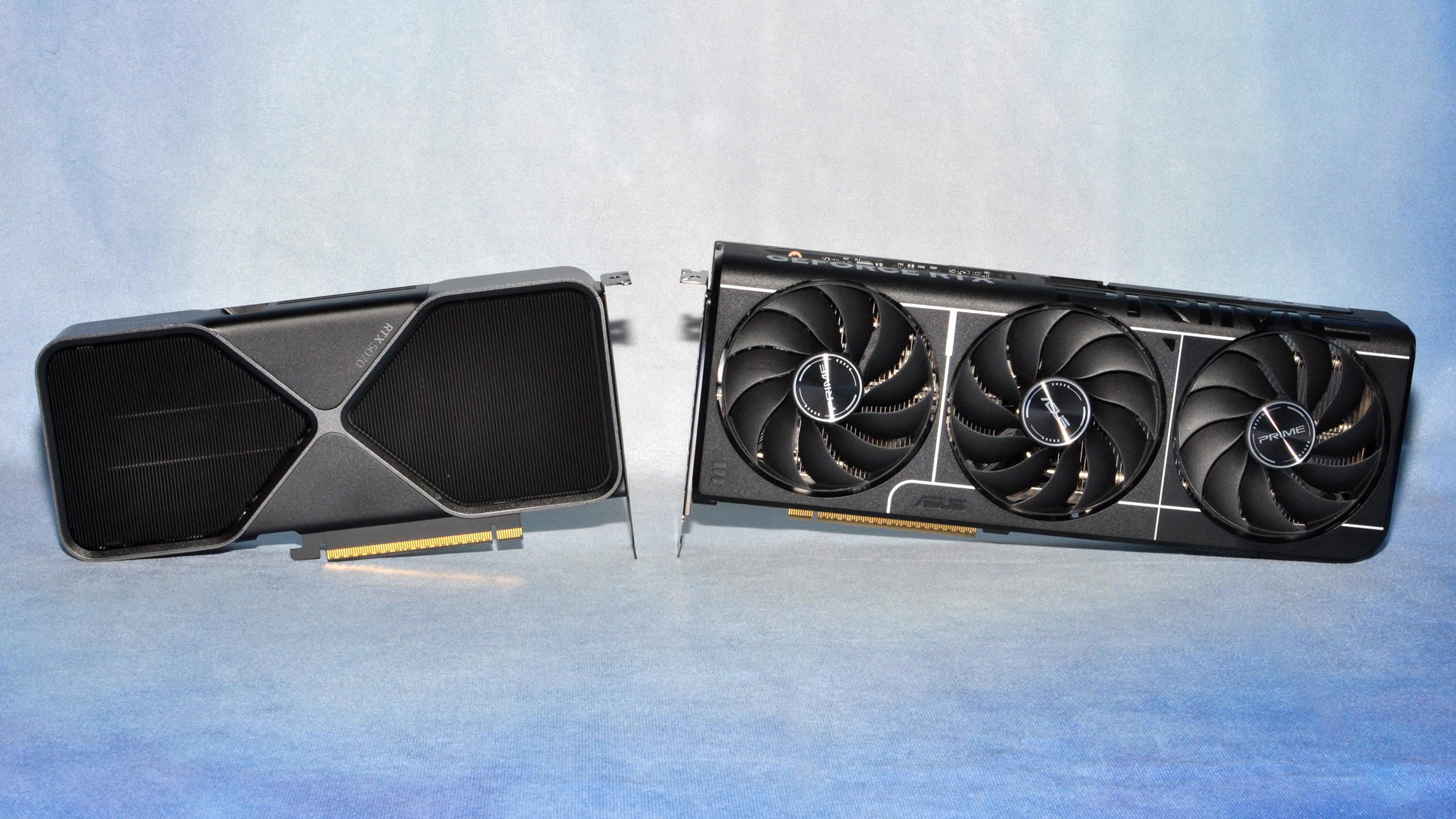
RTX 5070 vs RTX 5060 Ti Introduction
The Nvidia GeForce RTX 5070 and RTX 5060 Ti 16GB are the two most recent GPUs launched by Team Green. Since the beginning of 2025, Nvidia has released five Blackwell RTX 50-series GPUs — six if you want to count the RTX 5060 Ti 8GB as a separate entry.
To say that supplies have been limited and insufficient to keep up with demand would be a gross understatement, but the same applies to any of the best graphics cards right now. In fact, of all the Blackwell RTX GPUs, the 5070 and 5060 Ti are currently the most readily available; just don't expect to find most models at MSRP.
Our GPU benchmarks hierarchy ranks all the graphics cards by performance, and naturally the more expensive cards come out ahead of their less expensive siblings. But how do the RTX 5070 and RTX 5060 Ti 16GB stack up? We'll look at the performance, approximate pricing — because no GPU prices are reliably set in stone right now — as well as other aspects of the cards to help you decide which one might be right for your gaming PC.
Most of the features between the two GPUs will be identical. Both use the Blackwell architecture and support DLSS 4 and MFG, for example. Still, let's start with the specifications to see how the 5070 and 5060 Ti stack up.
RTX 5070 vs RTX 5060 Ti Specifications
As you'd expect, the RTX 5070 offers more raw performance on paper and in practice. It uses a GPU that's 45% larger, with 41.6% more transistors. More importantly perhaps, it has 33% more SMs, tensor cores, RT cores, and related computational units. It also has 50% more memory bandwidth and a 50% wider memory interface, plus 50% more L2 cache.
Memory interfaces don't scale as well as core logic on modern process nodes, and there are other aspects of the Blackwell GPU — the video encoders/decoders, display outputs, etc. — that don't really change, which explains why the chip size and transistor counts don't necessarily scale linearly.
Clock speeds aren't quite the same, at least on paper. The 5060 Ti has a 2572 MHz boost clock and the 5070 has a slightly lower 2512 MHz boost clock. But we're also looking at the 5070 Founders Edition with reference clocks, and a PNY 5060 Ti 16GB OC that has a 2692 MHz boost clock. Plugging in those numbers gives the 5070 30.9 teraflops of FP32 compute and the PNY 5060 Ti has 24.8 TFLOPS. That means the 5070 'only' has 25% more compute on paper — which isn't actually all that accurate.
In our full suite of gaming benchmarks, the 5070 Founders Edition averaged clock speeds of 2826 MHz while the PNY 5060 Ti 16GB OC averaged 2776 MHz. That means despite theoretically 180 MHz lower clocks, in practice Nvidia's 5070 card came out 50 MHz ahead.
That means the 5070 FE offers about 34.7 TFLOPS compared to 25.6 TFLOPS, a 35.5% advantage. Practically speaking, though, the 5070 should be up to 35% faster in games that are compute bound, and up to 50% faster for games that are memory bandwidth bound — and potentially the 5060 Ti could close the gap if VRAM capacity comes into play.
RTX 5070 vs RTX 5060 Ti Gaming Performance
There are multiple facets of performance to discuss. We'll start with gaming performance, as that's what the majority of people looking at the RTX 5070 and RTX 5060 Ti 16GB care about the most. We have an expanded test suite of 21 games, with 15 rasterization benchmarks and six ray tracing benchmarks — slightly more than the 18 games we use in our GPU hierarchy (we're planning to add these into the hierarchy but haven't tested every GPU yet).
The charts group things together by overall performance (geometric mean across all 21 games, where each gets equal weighting), rasterization-only performance, and ray tracing-only performance. We also have separate tables that show the percentage differences below the charts (sorted in reverse order due to the vagaries of Excel).
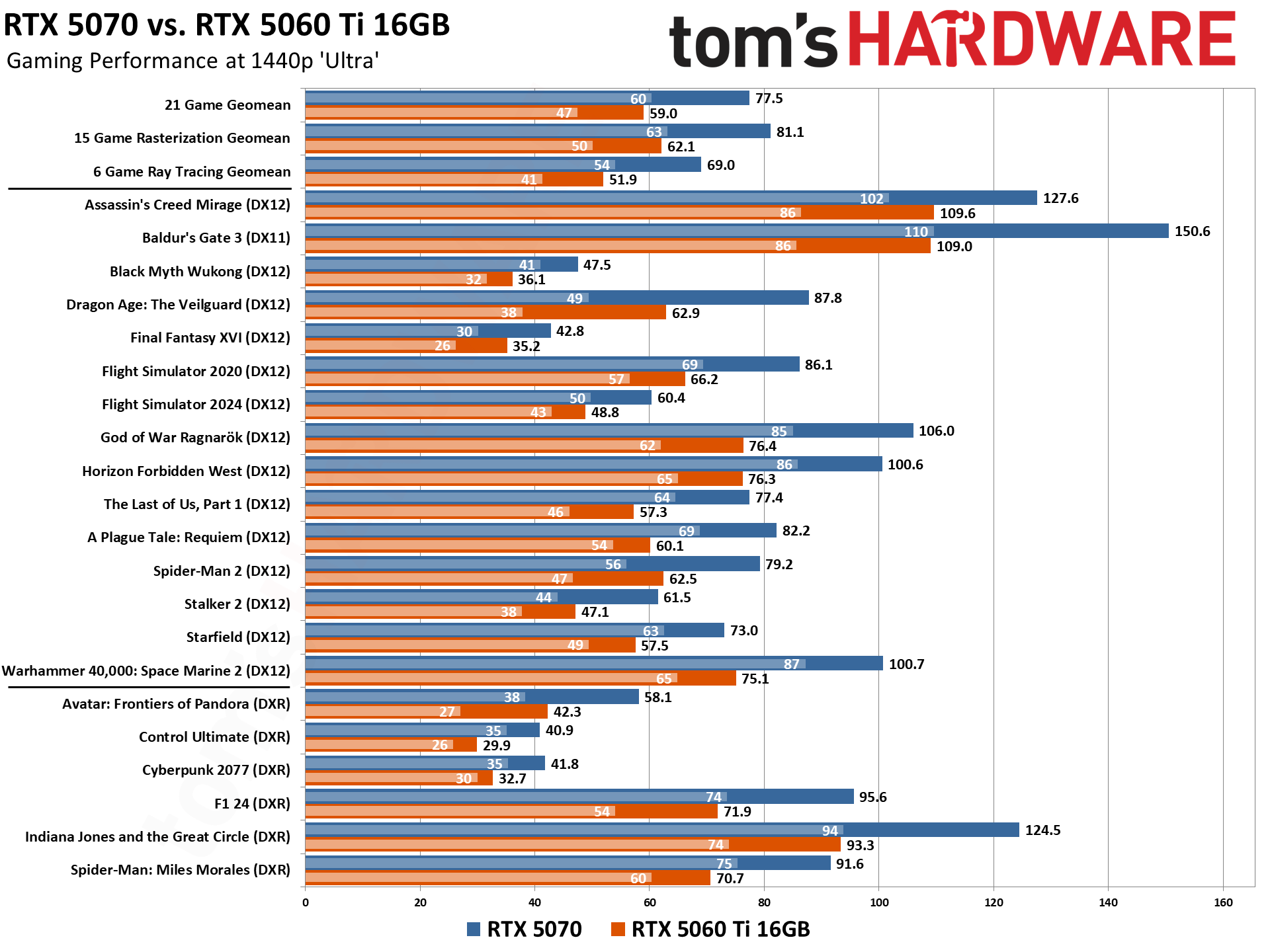
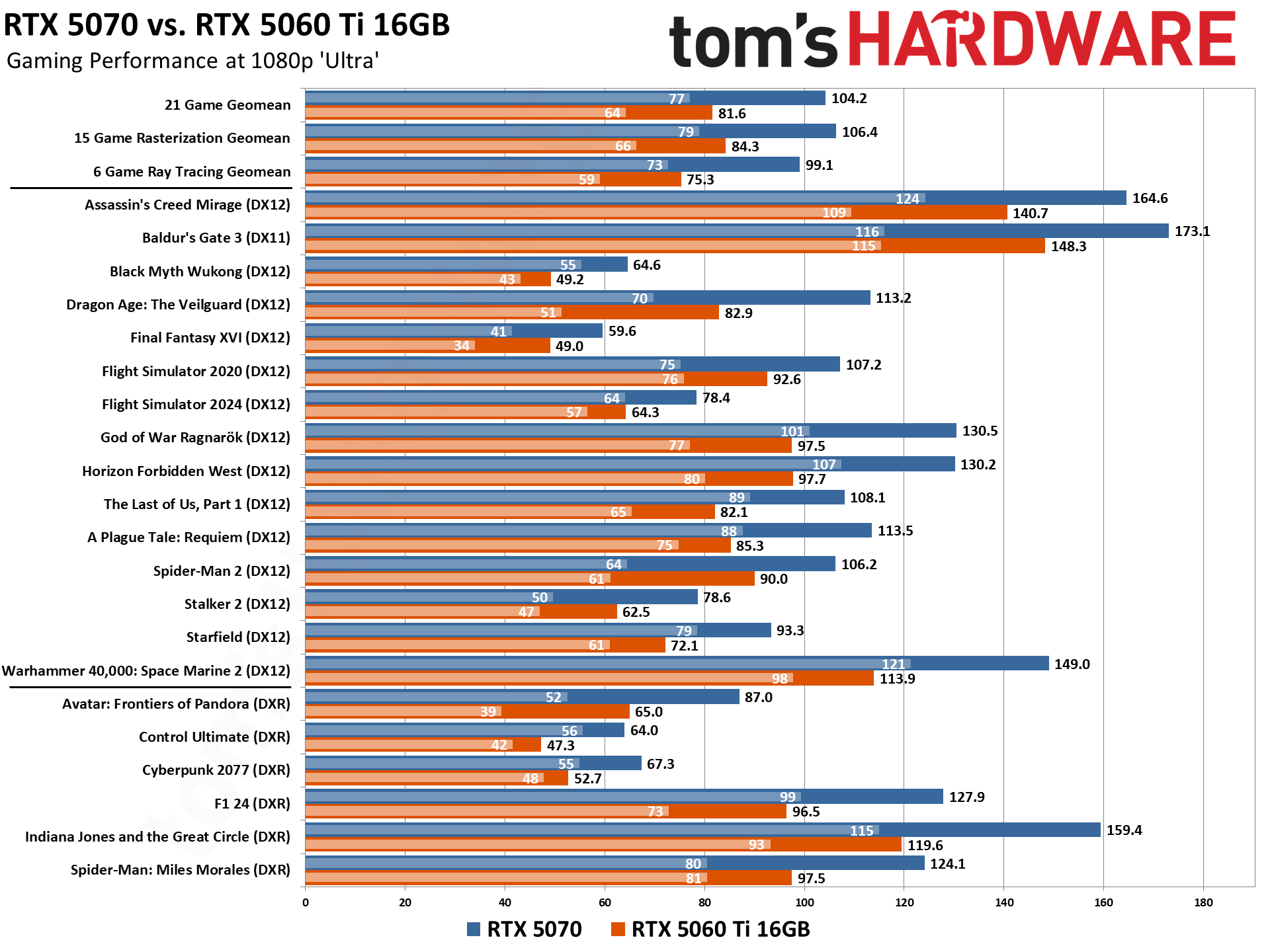
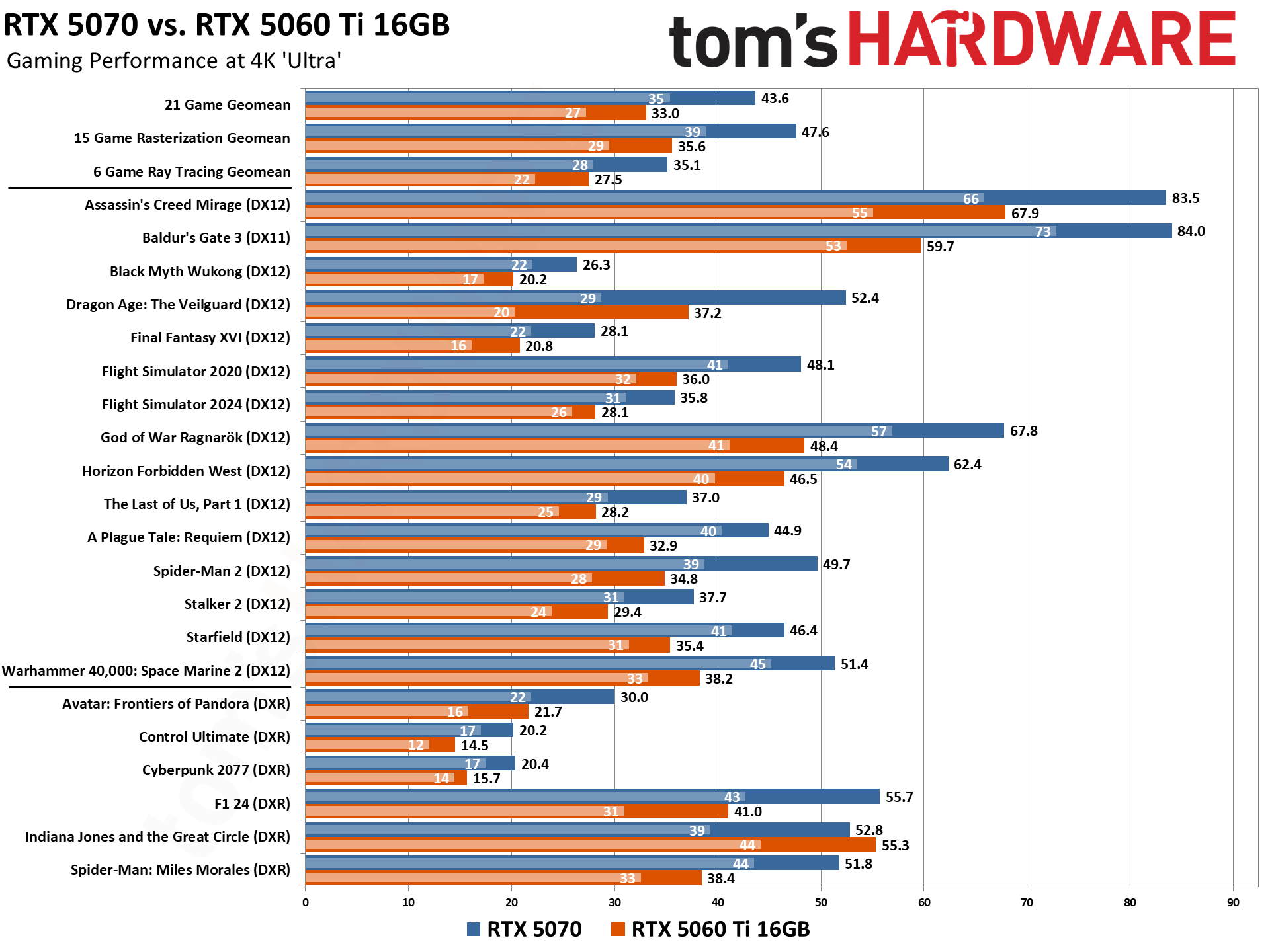
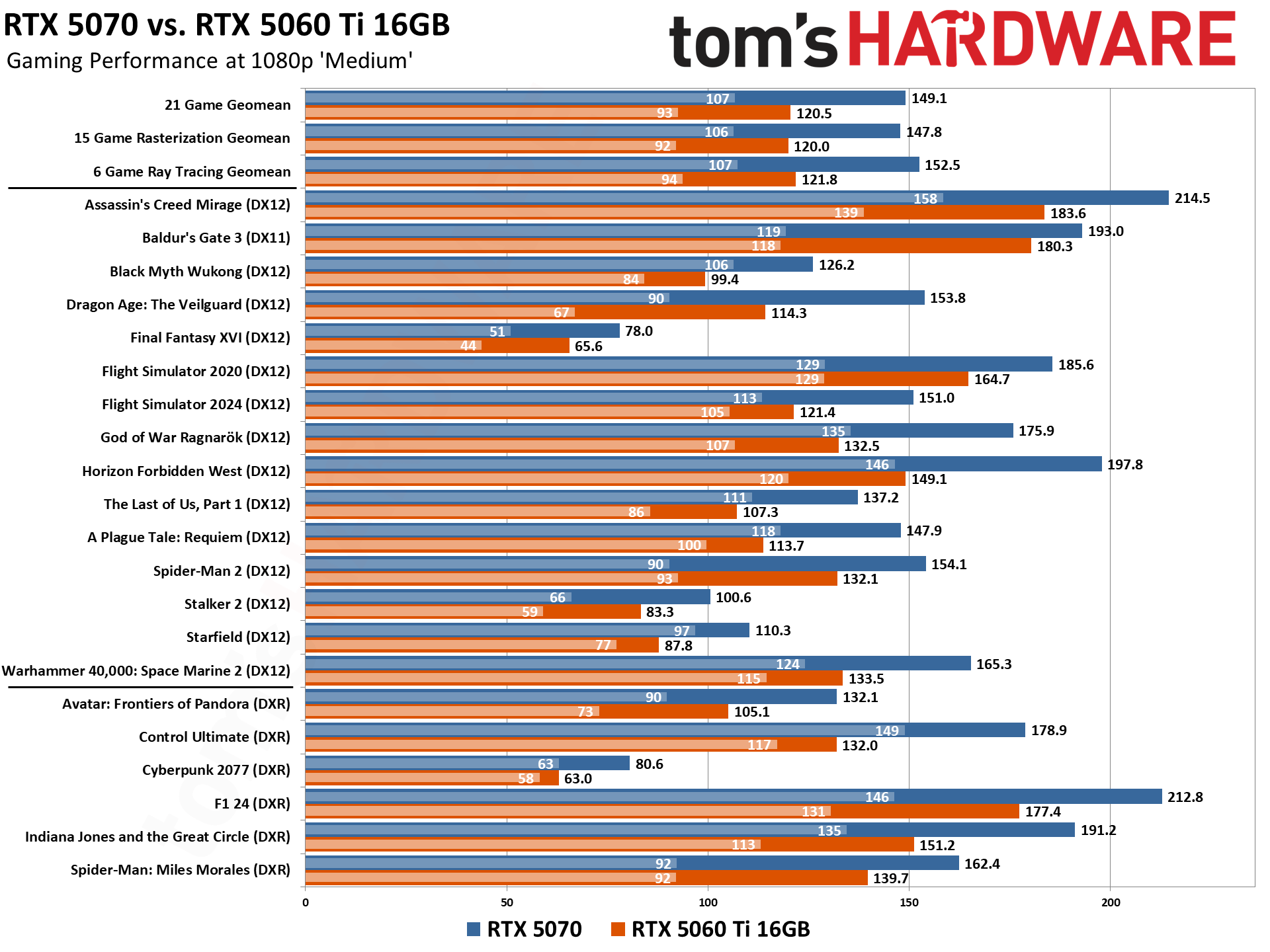
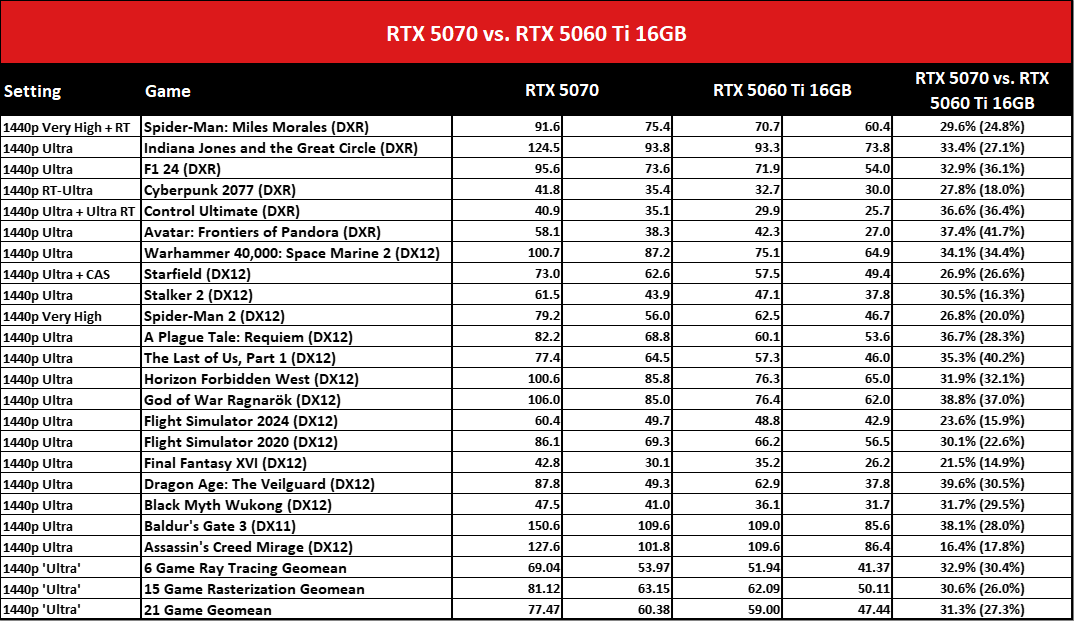
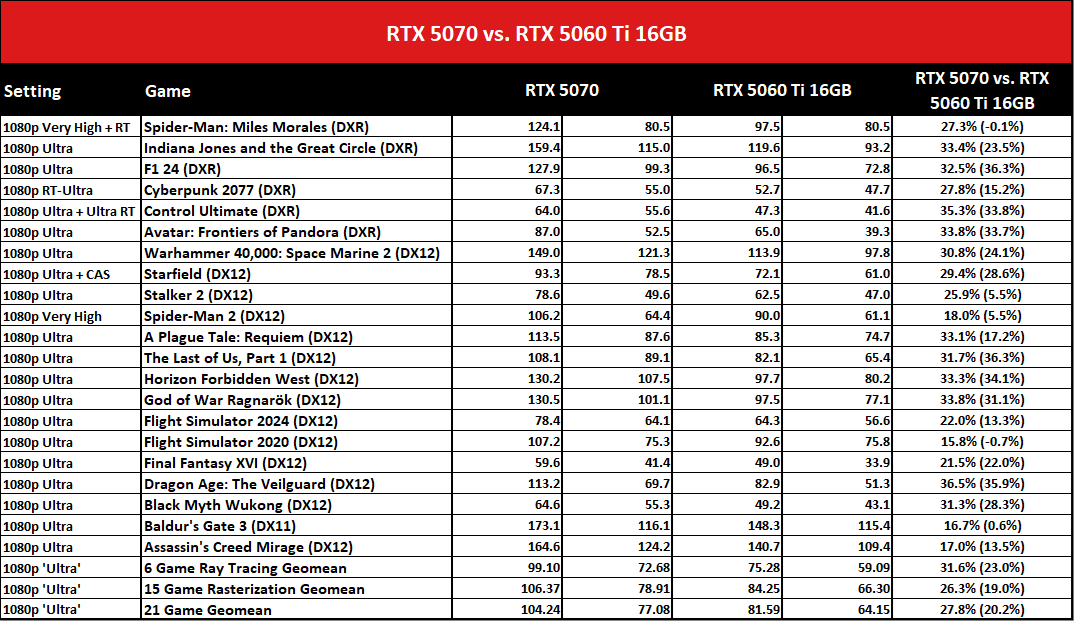
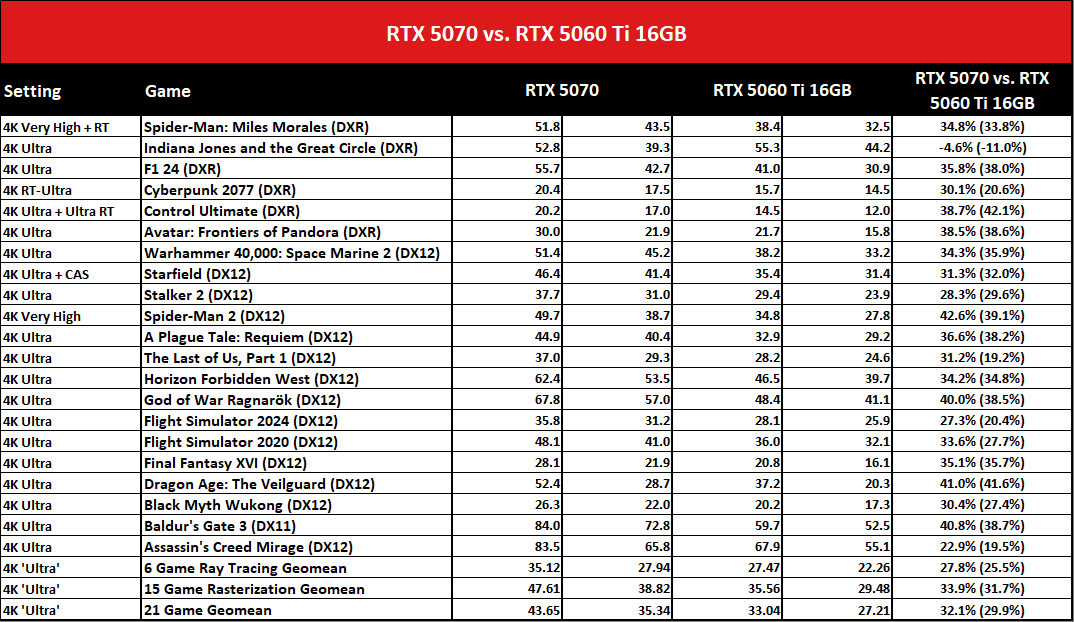
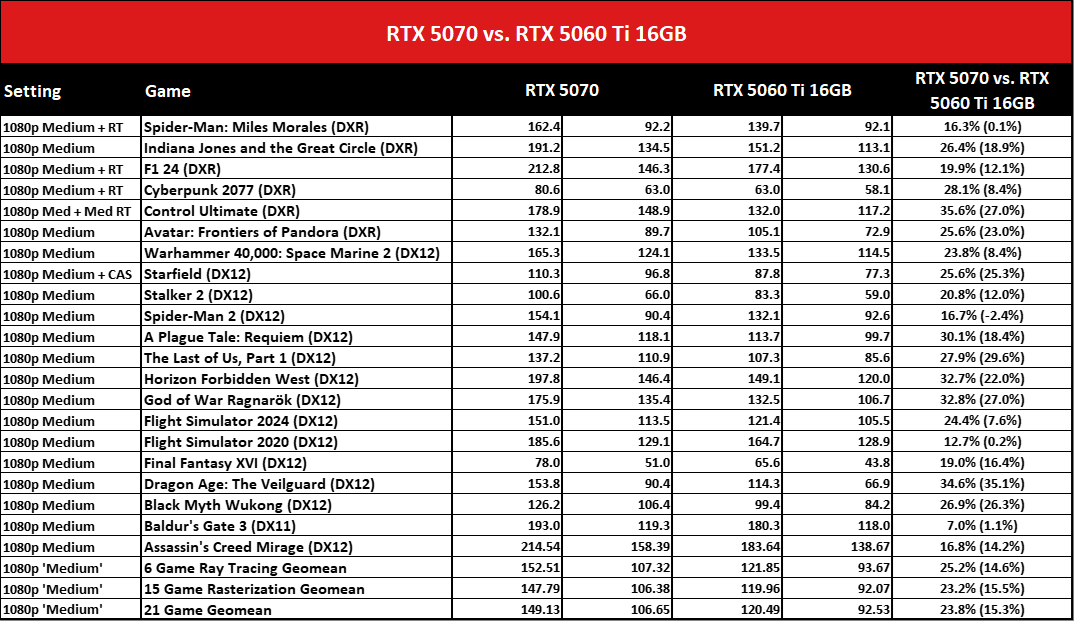
It's safe to say that neither the RTX 5070 nor the RTX 5060 Ti 16GB are primarily targeted at native 4K ultra gaming. The 1440p result works as a proxy for 4K with DLSS quality mode upscaling, and the 1080p result stands in for 4K with performance mode upscaling, though there would be potential differences. Upscaling does have some overhead, but since we're looking at two Nvidia GPUs we can expect a pretty consistent delta cause by DLSS. CPU bottlenecks would potentially affect performance at lower resolutions as well, which we can see by the results.
At 4K, the RTX 5070 leads the RTX 5060 Ti 16GB by 32% on average, with a performance difference of -5% (Indiana Jones and the Great Circle) to +43% (A Plague Tale: Requiem). Indiana Jones is known to want a lot of VRAM — you can even run the ultra setting on cards with less than 12GB — while various other games appear to want more memory bandwidth.
Dropping to 1440p, the 5070 lead shrinks fractionally to 31% overall, and this time there are no performance deficits. There may be a few other games out there that can push beyond 12GB of VRAM use, but from our test suite — a rather demanding suite overall, we'd say — 12GB remains sufficient in all games for 1440p, and in all but one of the games for 4K.
1080p starts to run into CPU limits, even more so at medium settings, which shrinks the delta between the 5070 and 5060 Ti to 28% at ultra settings and 24% at medium settings. That's still a sizeable gap, with a few of the games showing basically equivalent performance due to the CPU bottleneck (Baldur's Gate 3, Flight Simulator 2020, Spider-Man 2, Spider-Man: Miles Morales, and Stalker 2 end up tied in one or both cases).
Looking at the rasterization and ray tracing performance, overall there's not much difference at the various resolutions and settings. 4K ultra does run into VRAM limits on one of the RT games, so that the gap is slightly narrower there than at 1440p and 1080p, and our RT test suite does end up with lower FPS than the rasterization games at ultra settings. Medium settings with RT enabled actually runs faster on average for our test games, but only Control and Cyberpunk are truly demanding RT games in our title selection.
RTX 5070 vs RTX 5060 Ti Content Creation Performance
Our content creation test suite consists of a variety of test that all loosely fall into the "professional" category. We have multiple AI tests, 3D rendering benchmarks, video transcoding performance courtesy of SPEC Workstation 4.0, and the SPEC Workstation 4.0 Viewport benchmarks (basically the same tests as SPECviewperf).
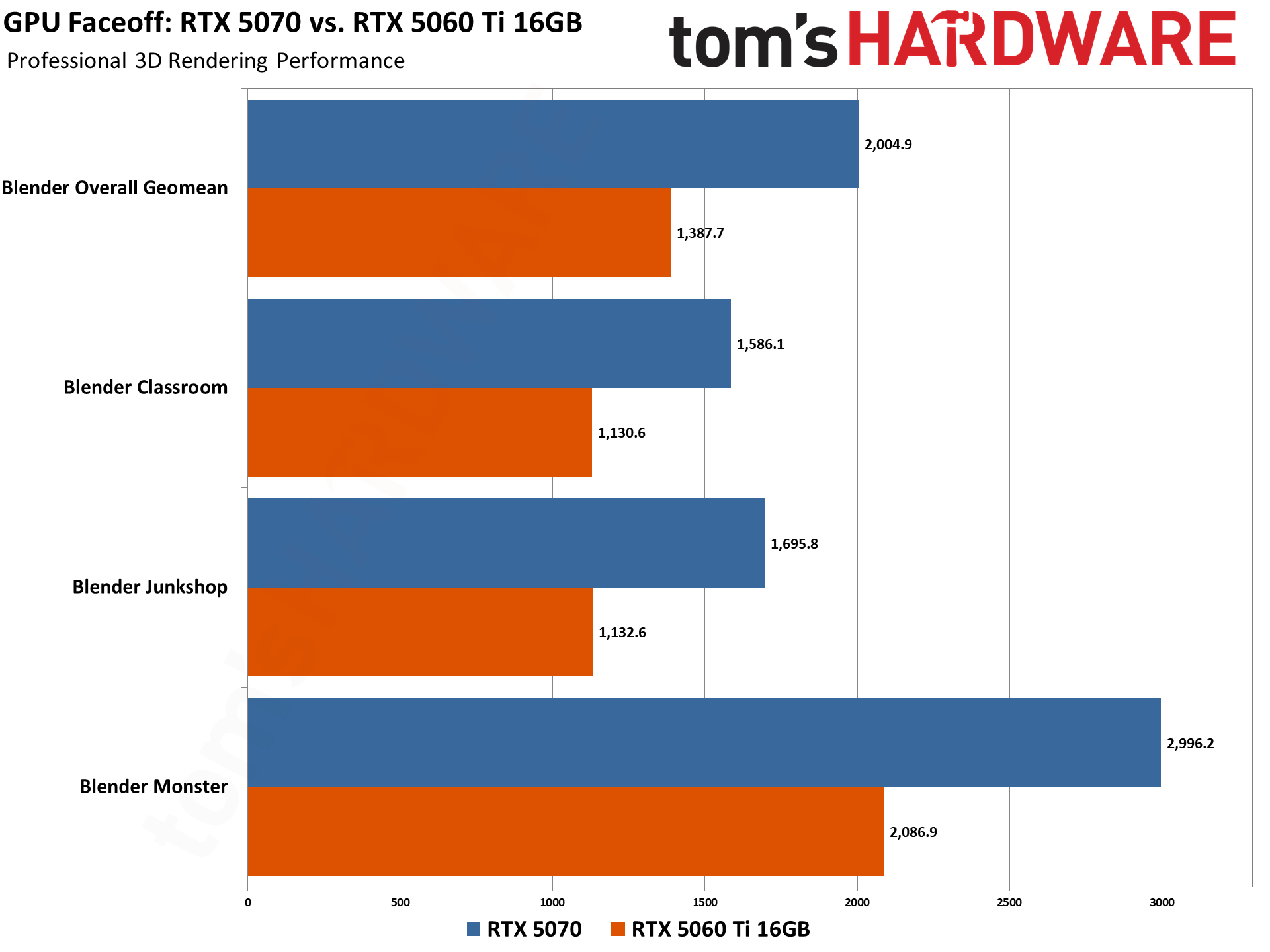
As expected, the RTX 5070 generally walks away with the content creation crown. It's 45% faster in the Blender 3D rendering benchmarks, 33% faster in MLPerf text generation tokens per second, and 20–43 percent faster in the Procyon and SPEC AI tests that we ran. The 5060 Ti 16GB did have a faster time to first token in MLPerf, though it's possible that's due to updates to the benchmark (we'll recheck the 5070 in the near future, once our test rig isn't busy).
For SPEC Workstation 4.0's Viewport tests, there's another instance of the 5060 Ti 16GB garnering a win — it's 2% faster in Creo. But overall the 5070 still has a 23% lead. Handbrake video transcoding meanwhile ends up as a tie, which is expected as the fixed function encoding and decoding hardware is the same, so the only difference would be GPU clocks during that test.
Neither GPU is specifically marketed as a professional solution, though we anticipate there will be professional variants of both chips (with more VRAM and drivers that enable additional accelerations in some of the SPEC Viewport tests). Mostly, the AI results are interesting as a hobbyist solution, though it's possible future games might leverage the AI hardware more.
RTX 5070 vs RTX 5060 Ti Conclusion
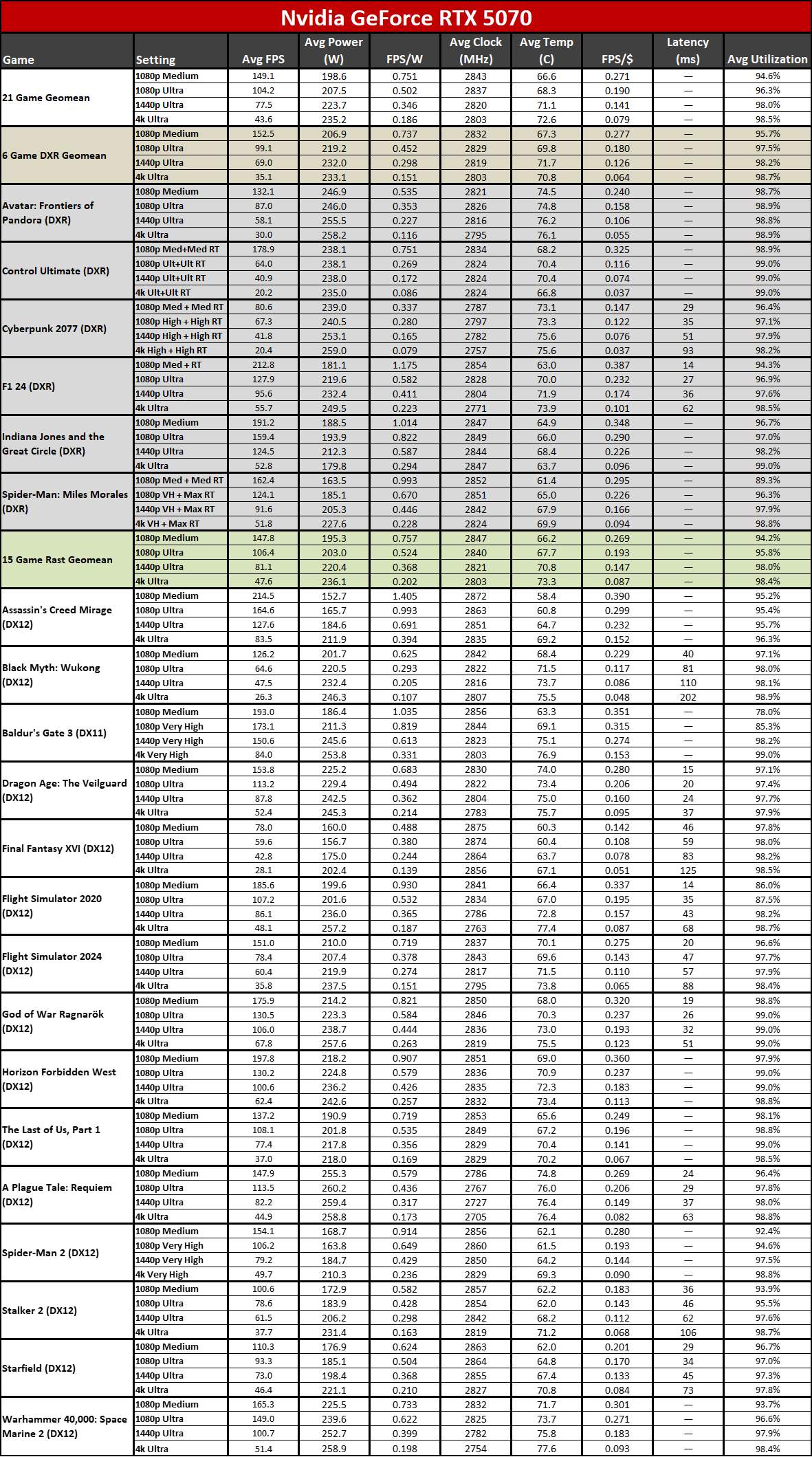
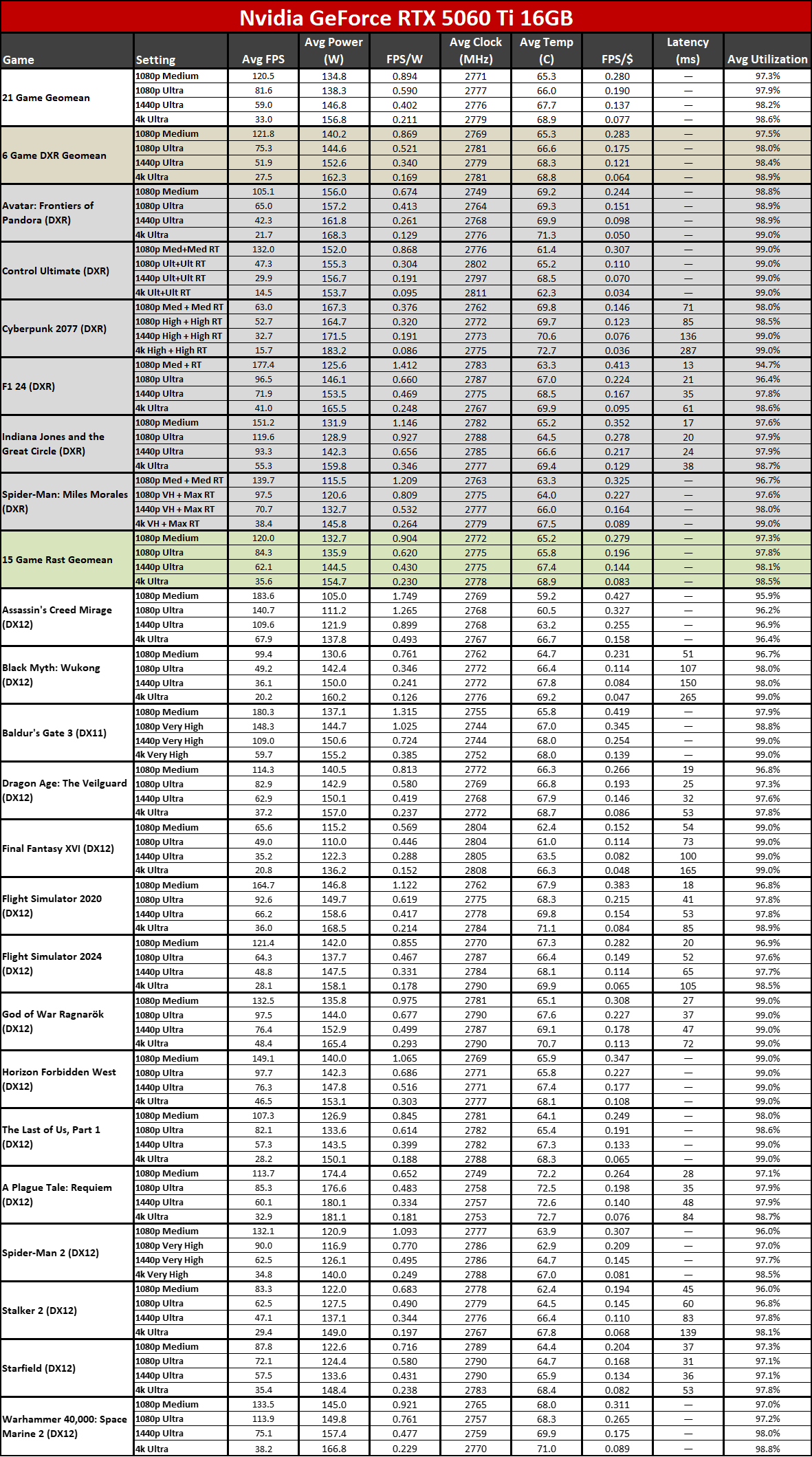
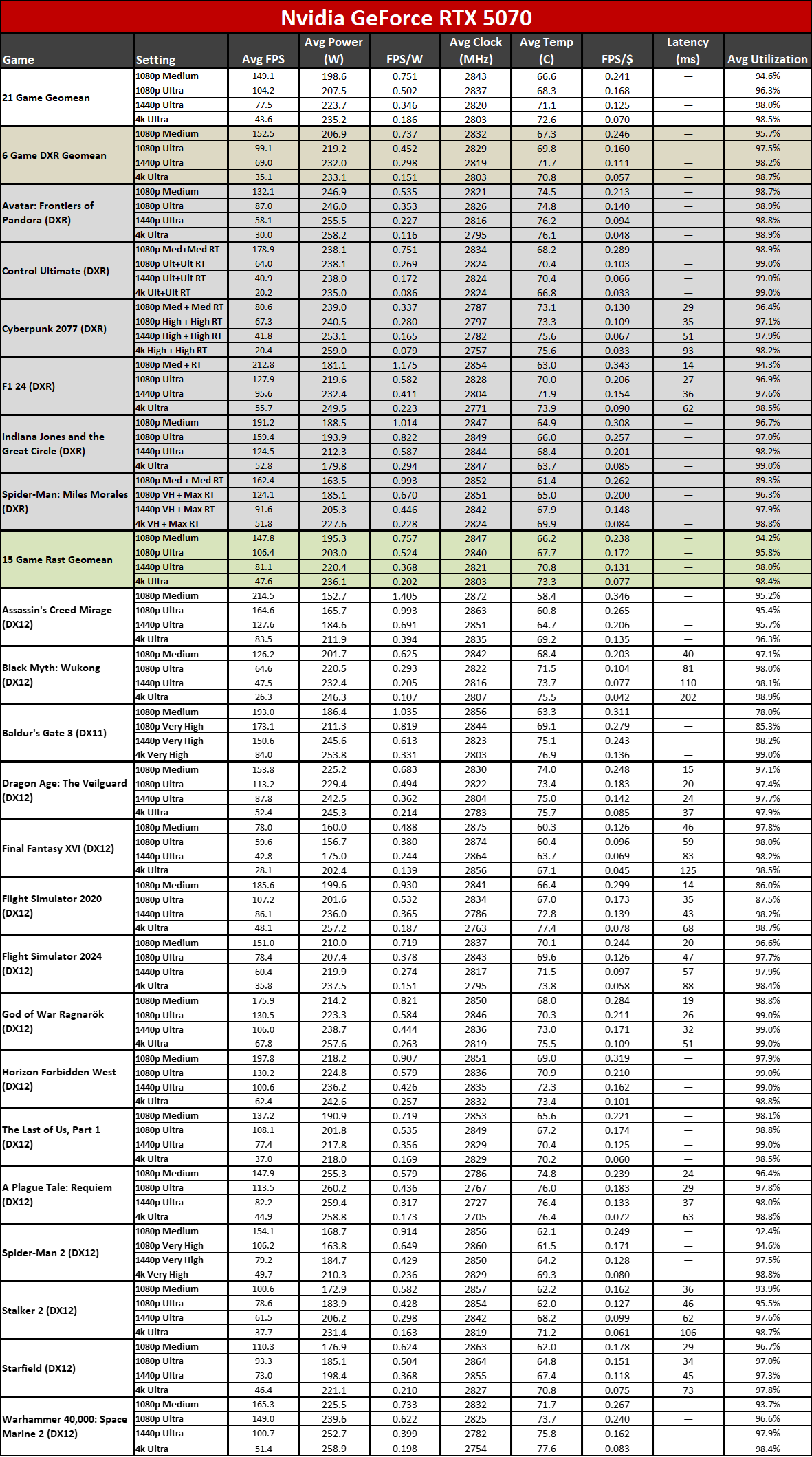
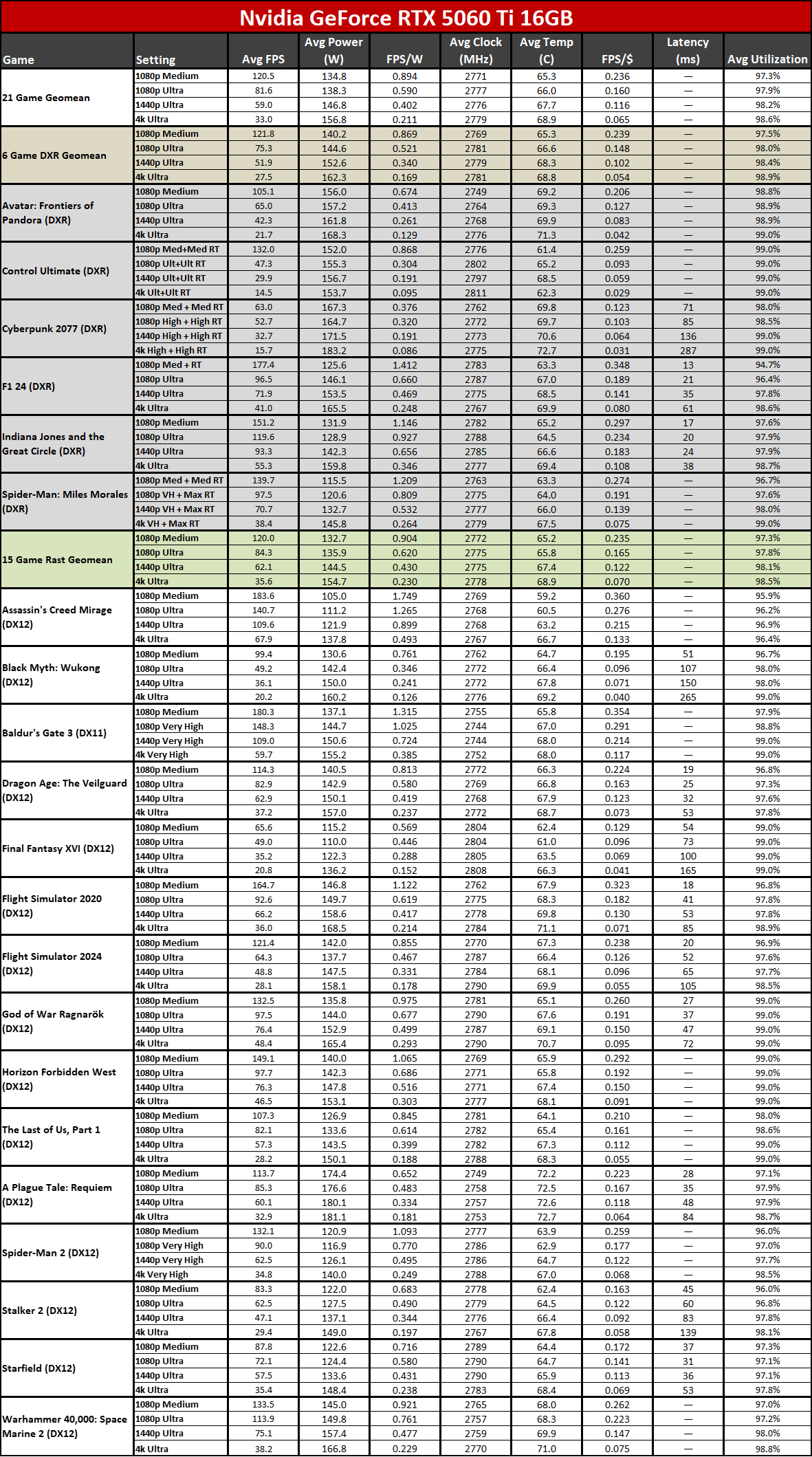
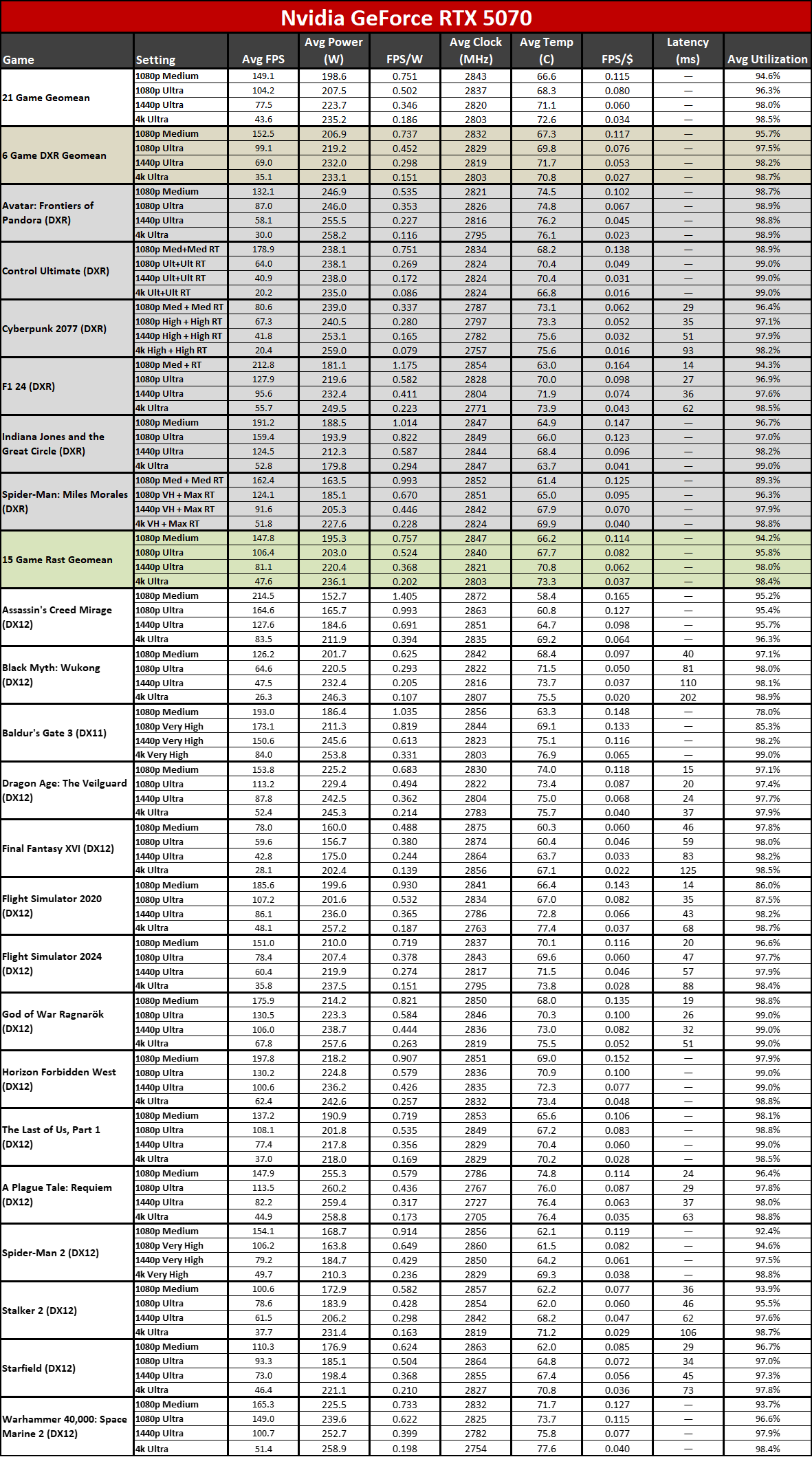
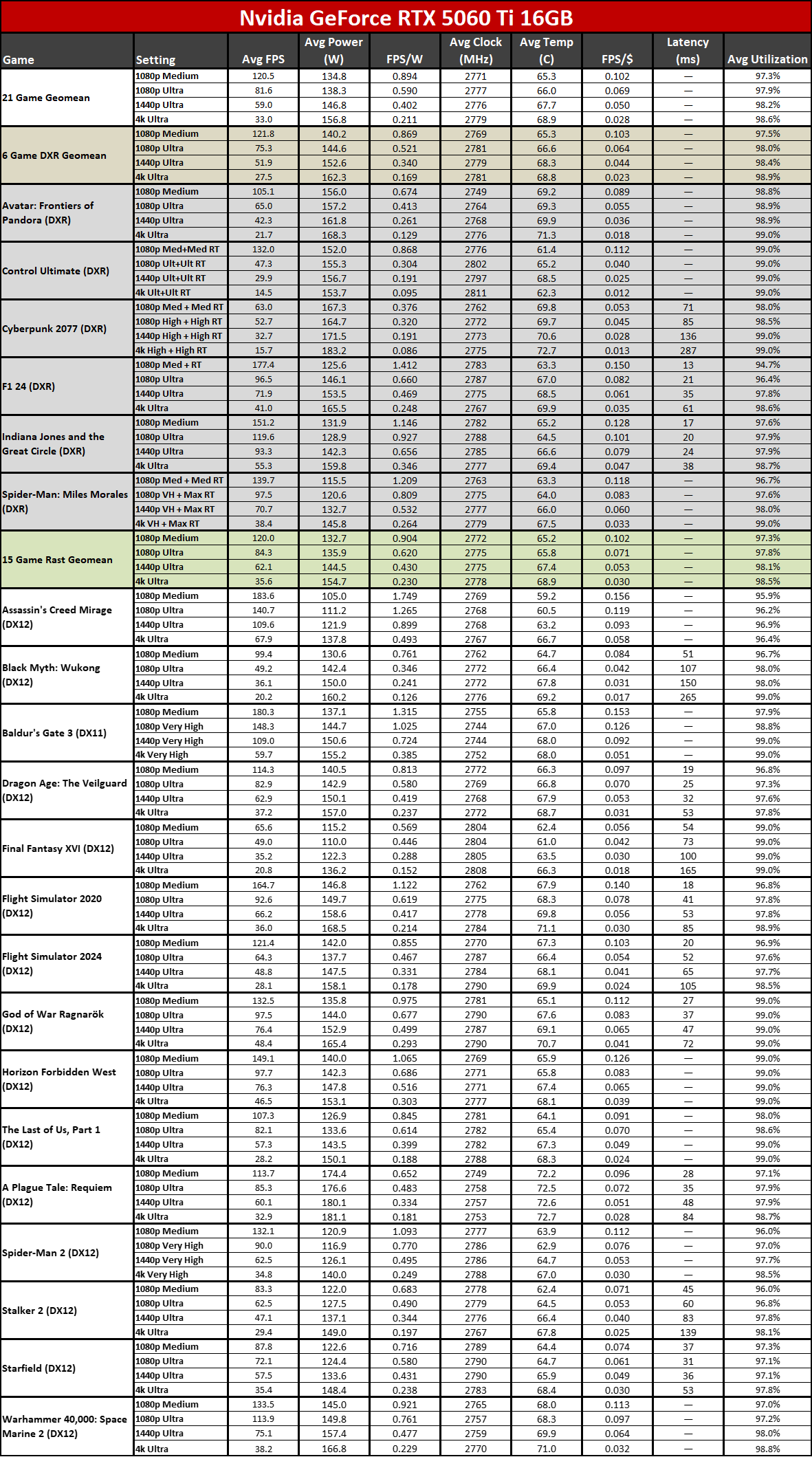
Which is better: RTX 5070 or RTX 5060 Ti 16GB? Price, as we said at the start, will arguably be the biggest factor in deciding between the RTX 5070 and RTX 5060 Ti 16GB. It's also the one thing that we can't really pin down at present. Since the 5060 Ti launched just a few days ago, pricing and availability are more likely to fluctuate in the near term. The 5070 has been out for a month now, and we have a better idea of what to expect.
First, let's talk about MSRPs and performance. On paper, Nvidia gives the 5060 Ti 16GB a $429.99 MSRP and the 5070 has a $549.99 MSRP — so $430 and $550. That means the 5070 is supposed to cost 28% more than the 5060 Ti 16GB. And based on the performance results, that's exactly in line with what you get.
Linear performance scaling generally means you're better off buying the more expensive card — we would normally expect to see diminishing returns. So if you buy an RTX 5060 Ti 16GB at MSRP and get 0.171 FPS/$ across our gaming tests, versus the RTX 5070 with 0.170 FPS/$, we give the win to the 5070. The reason is because the GPU doesn't exist in a vacuum; there's the rest of the PC to consider.
Alternatively, let's talk current street prices. These will change dramatically over time, but we can currently find an RTX 5060 Ti 16GB for $509.98, or an RTX 5070 for $619.98. That's the second pair of tables in the above gallery, which obviously skews in favor of the 5070 at current prices. And that's what you need to look at, first and foremost.
Finally, imagine a PC where the CPU, motherboard, SSD, RAM, PSU, and case together cost $750 for example. Now you're looking at a total cost of $1,180 for the 5060 Ti 16GB compared to $1,300 for the 5070 build (using the base MSRPs for the GPUs). That works out to just 10% more total money for about the same 25~30 percent performance uplift. It's what the last set of tables above show, and again, it favors the 5070 heavily.
Given the 25~30 percent performance advantage of the RTX 5070 over the RTX 5060 Ti 16GB, spending up to 30% more on the RTX 5070 would make sense. It's the clear winner at current online prices, or at the given MSRPs. In fact, we would argue that it's worth spending up to 40% more for the 5070 compared to the 5060 Ti, as we normally expect diminishing returns.
We don't know where prices will end up, in the U.S. or elsewhere, but you can use the above 30–40 percent figure as a guideline. If the RTX 5070 were to cost $550, we wouldn't recommend spending more than $425 on the RTX 5060 Ti 16GB — and $400 would be better. Conversely, if the best price you can find on the RTX 5070 ends up being $700, then the 5060 Ti 16GB would be worth $500 to at most $540. (And you can replace the dollar signs with whatever monetary symbol you choose.)
Long-term, we expect both GPUs will trend toward about a 30% higher price for the RTX 5070 vs RTX 5060 Ti 16GB. Anything less makes the slower card very difficult to justify, even if it does technically offer more VRAM. So unless you specifically need a card with 16GB, perhaps to run a particular LLM, the RTX 5070 offers the better overall value right now, and will probably continue to do so in the future.







